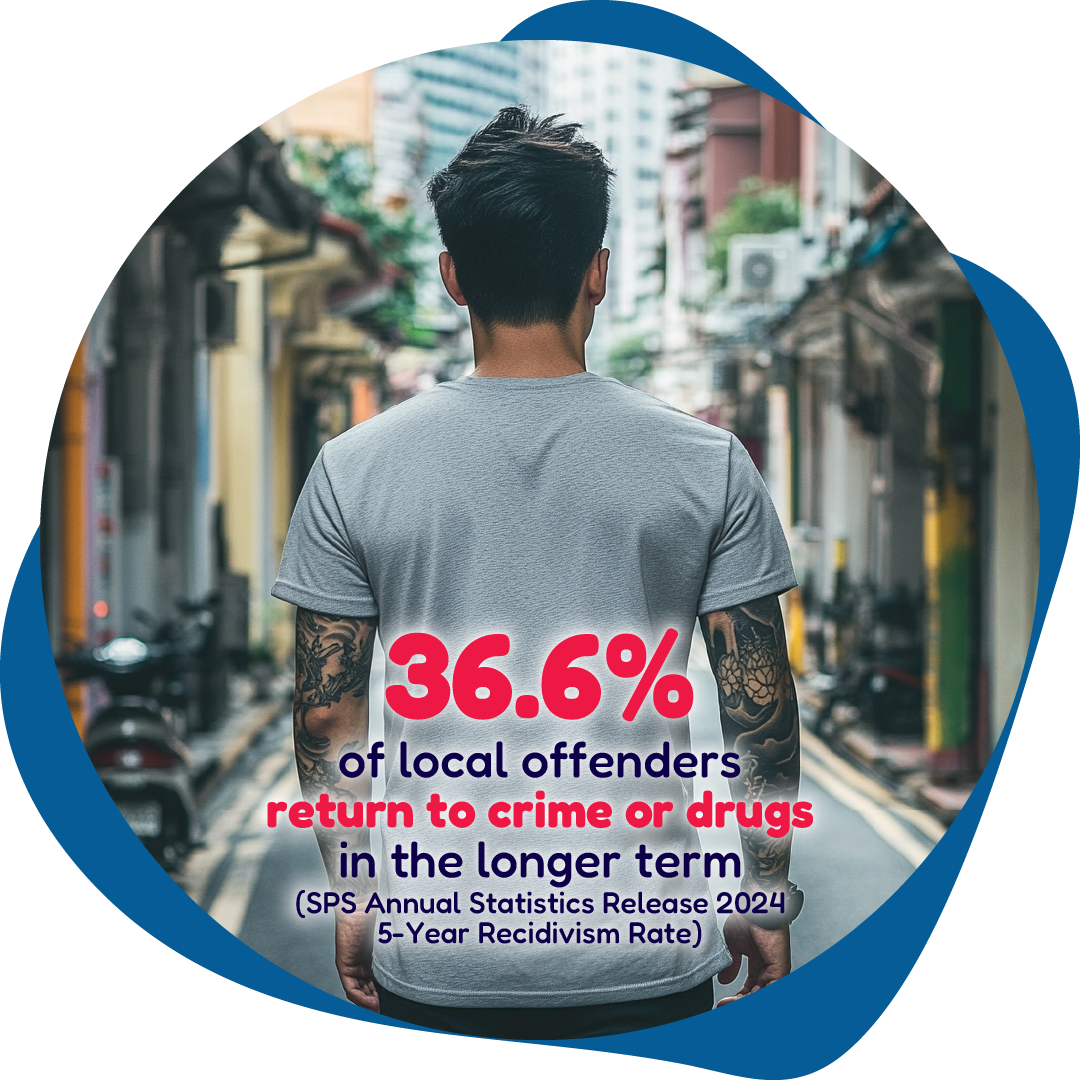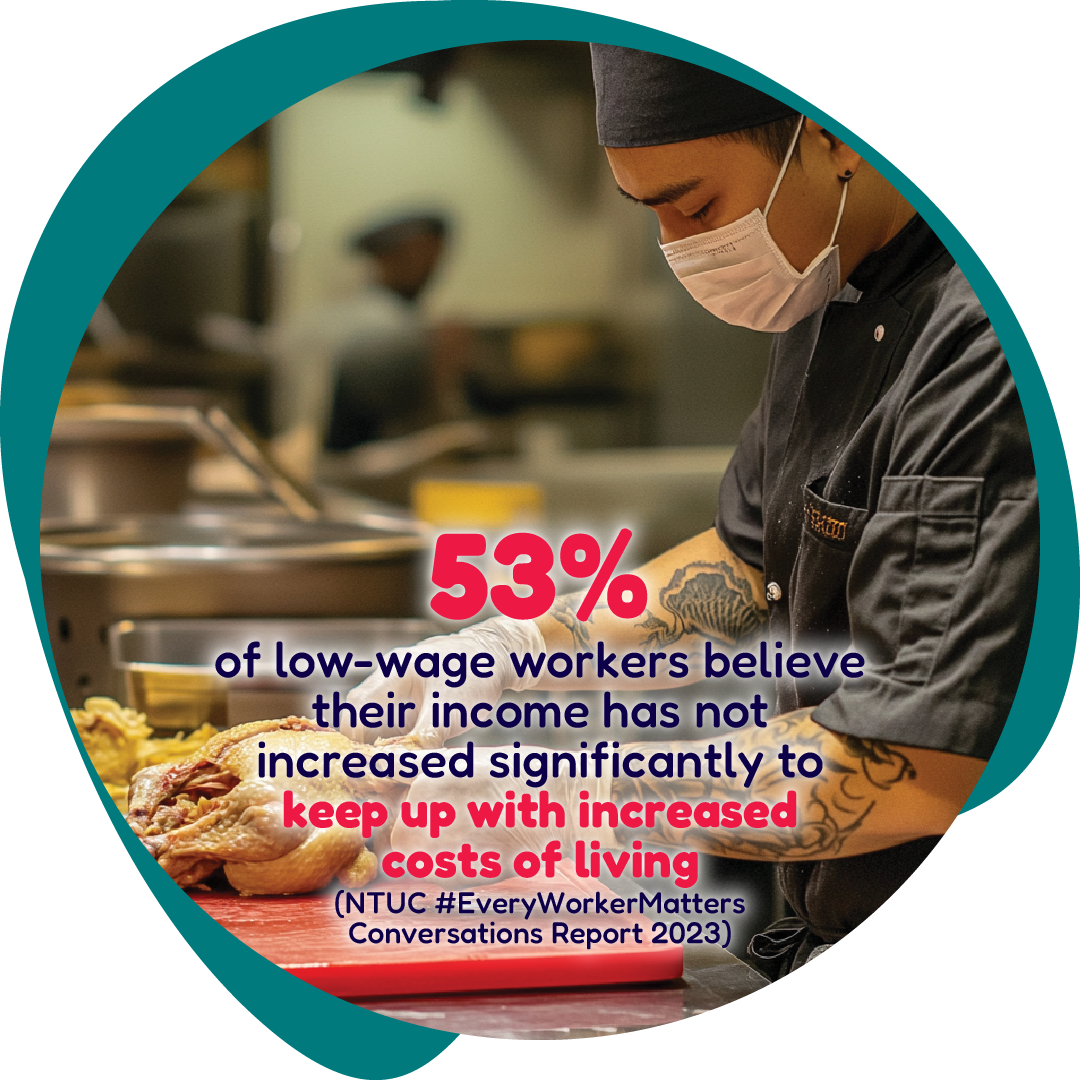- Ex-offenders may have lost their families and homes as they paid for their past mistakes, and need a second chance to stay crime-free and become productive members of society.
- Vocational workers with low education and employable skills have to contend with low incomes, limited career progression and ability to provide for their families. Their challenges are multiplied if they are ex-offenders.
- Singapore's population is projected to become a super aged society in 2026, and our elderly ex-offenders may need additional support with mobility and health issues.
Recividism

Recidivism refers to the tendency of a former offender to re-offend, and poses a significant challenge to the safety of societies worldwide. Singapore places a significant emphasis on rehabilitating and re-integrating offenders into the community, which has resulted in a low and stable two-year recidivism rate hovering around 25% for the past ten years.
Singapore Prison Service (SPS) has attributed this low rate to the evidence-based rehabilitation programmes provided to inmates, followed by structured community supervision by SPS and aftercare assistance provided by community partners like HCSA Highpoint after they are released.
Desistance from crime and drugs is a long-term journey by individual lives and personal trajectories within their social networks. In the last two years, the five-year recidivism rate has dropped below 40%, likely due to the stronger pro-social support ex-offenders receive when they are back in the community.
HOW HCSA HIGHPOINT CARESLow-Income Vulnerability

Lower-wage workers and their families in Singapore live on the fringe of an increasingly competitive and expensive city. They grapple with having to work long hours and uncertain career advancement opportunities. Their ability to provide lifestyle choices for their family is limited by their income and disproportionately impacted by soaring costs.
Lower-wage workers earning under $2500 may experience unfavourable working conditions, limited job security and inadequate work protections. They are likely to be older, lower educated and working in industries such as transportation and storage, administrative and support services, and food and beverage services. The primary issues that concern them are the lack of public respect for their work, stagnant or insufficient wage growth and the lack of awareness or opportunity to pursue training and career progression (NTUC, 2023).
HOW HCSA ACADEMY CARES